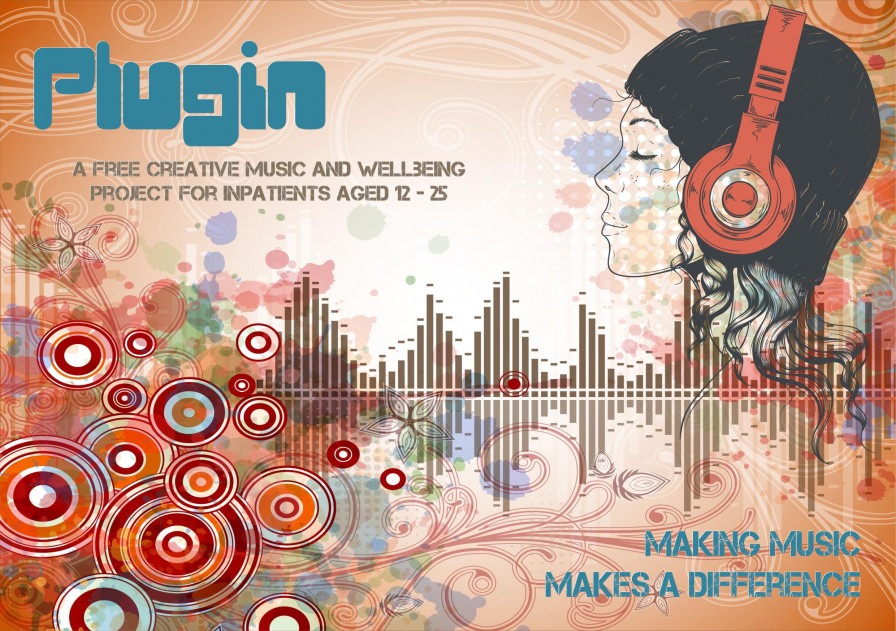Developing a Holistic Approach to Teaching, Performing and Composing by Kai Chareunsy (Young Music Leader on Quench Arts’ Plugin project)

In 2022 I spent April to December working as a music facilitator in a forensic CAMHS setting, this involved myself and the lead music facilitator going into the hospital for three hours each week and working with the young people on creative music making, which can be anything from having an instrumental ‘jam’ together to producing beats in Logic Pro X.
When starting this work, the majority of my experience in teaching was one to one drum lessons at a music centre, covering grades and whole class year 5 djembe lessons. Personally, I found it hard to see my career developing in these types of settings, largely because as a student I didn’t enjoy completing grades so struggled to teach students in an engaging way, and the approach was so different to how I approach music making outside of the classroom. At this time, I was starting explore how I could compose music that was more self-expressive and personal, as most of my work as a performer was as a ‘sideman’ playing other people compositions. I thought that if my teaching could also engage with this area by working with young people to express themselves through music, it would help to create a more holistic approach to teaching, performing and composing. After speaking to friends and researching different types of teaching work, I came across the concept of music facilitation which sounded perfect for me, and I was made aware of the opportunity to be involved with Plugin project and Quench Arts.
The idea of developing a holistic approach to teaching, performing, and composing is for me about encouraging these three aspects of my practice to inform one another and the Plugin project has been a huge insight into how this can work.
Firstly, by working in a discipline (music production) that I am relatively new to, but want to learn and use more, meant that each session was taking me slightly out of my comfort zone. I felt that my knowledge was just enough to get by but most importantly was improving week to week. Being paired with an experienced music leader gave an insight into not only what technology he uses, but also how and when. One of the most useful things I have taken from the project is using the Novation Launchpad to trigger loops in Ableton. I have some pre-made projects featuring either drill, DnB, or garage loops, then, depending on what type of music the young person likes, they can quickly make their own track by triggering loops as and when they like. This is something that I now take into other settings I work in. It is incredibly useful to use in a first session as it is instantly engaging and a good way to open the door to music production.
Secondly, this role was helped me in developing personal skills, such as managing professional working relationships and building confidence in my ability as a professional musician and facilitator. After graduating from Birmingham Conservatoire, I felt confident in my abilities as a drummer but lacking in other important skills when it comes to living and working as a musician. The forensic CAMHS ward is a very concentrated, controlled, and focused environment which can at first feel intimidating to walk into. There is a lot of attention directed towards the sessions with the young people which could sometimes last up to two hours with one person and would always require us to be flexible and sensitive to the young person’s moods in how we approached the session. In situations where a young person would open up about their feelings, there was always a risk that this would turn into a downwards spiral and one of our biggest challenges was turning this energy back towards the music but when we did, it often resulted in some of the best and most genuine music making. Going into this environment felt like being thrown into the deep end but in a support way, learning fast and building confidence each week. It has given me personal skills that are transferable not only to other facilitation settings, but to other artistic settings such as, composition residencies, workshops, interviews for commission opportunities etc.
Thirdly, and finally, it goes without saying that working with young people who are facing such adversity, yet find comfort in making music, is incredibly inspiring. Understanding how much music means to people and how important it can be in an individual’s life is something that I will always try to keep at the centre of my career development, whether that is facilitation, performing, or composing. I am now mostly working in settings with young people who are disengaged with mainstream education, such as pupil referral units, and social, emotional, mental health schools.
